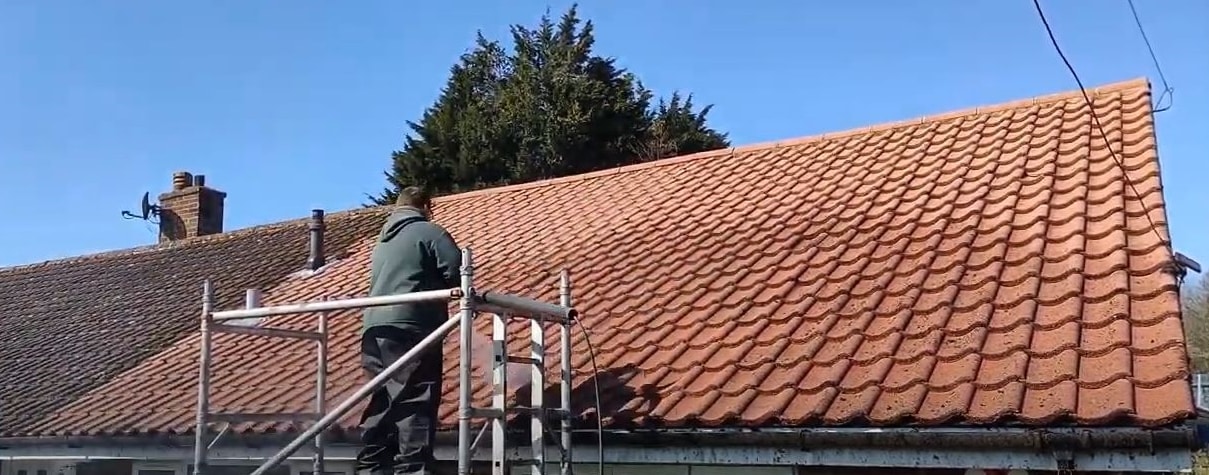Improved AI in real estate answers key questions: What will the view be like? How close are wildfire risks?
4 min read
Is dwelling-purchasing obtaining less personal? Or just far more scientific?
True estate corporations, creditors, insurers, residence house owners and these who present information for all of these stakeholders are progressively utilizing artificial intelligence in every single aspect of buying, offering and home funding. Algorithms churn via thousands and thousands of files in seconds: assets values, credit card debt stages, home renovations and even parts of a homeowner’s private info. AI served in a lot of marketplaces for the duration of the COVID-19 pandemic’s worst times and due to the fact, when offer for sale dried up and rates surged, mainly because it meant brokers could forged their net broader.
Speed and precision all around shopping for and advertising significantly make a difference as the U.S. actual estate marketplace continues to be dominated by higher charges — although tendencies constantly fluctuate by region — and a hurry by lots of would-be prospective buyers to get in just before added projected fascination-charge increases materialize.
One particular information agency, CAPE Analytics, which generates artificial intelligence-run geospatial property data, believes it can more eliminate human emotion and error in valuing property, in particular by delivering a broader-lens snapshot of exterior and surrounding problems that will effects a dwelling or commercial building’s price.
CAPE’s AI-run platform, AIRE, launched this week, will fill critical gaps identified in traditional data sources, it argues. For instance, AIRE will incorporate distance to highways and bodies of water. It can give late purchasing-procedure knowledge in the celebration the assets has signficantly transformed because of to wildfire or other critical storms. AIRE even captures the view visible from every home.
“All of which are options that are missed by existing details sets and even human-led exterior inspections,” reported Raj Dosaj, head of genuine estate for CAPE Analytics.
“As desktop and hybrid appraisals increasingly grow to be the norm, the most correct and finish details sources will have to be brought to bear in buy to retain accurate valuation assessments,” he claimed.
This expanded facts collection has turn out to be more and more essential to real estate, home lending and property insurance marketplaces as local climate change-induced storm severity, drought circumstances, flooding and wildfires modify communities. Over 600 fires had damaged out in New Mexico and Arizona by early Could. And that follows severe wildfire ailments in Colorado, California, Oregon and in other places in current several years.
Browse: Climate alter fueled 3rd costliest losses ever in 2021 — less than fifty percent of that assets was insured
CAPE’s AIRE system brings together computer system eyesight, aerial imagery, granular geospatial information and proprietary details sources.
CAPE states it found inconsistent reporting from the ordinarily-utilized automatic valuation styles (AVMs), standard exterior broker price views (BPOs) and house ailment studies (PCRs). All explained to, 70% of house challenges discovered by AIRE are skipped by current human-driven solutions, the enterprise believes.
“‘Many valuation and appraisal tools…have issues evaluating atypical properties — or even common residences in atypical places — which can be exacerbated when true estate markets become more unstable.’ ”
This qualified prospects to chance miscalculations through underwriting, personal loan and real estate trades, unstable insurance high quality-environment, and misprices real estate expense portfolios. And, ultimately, it indicates that residence prospective buyers and sellers are not having the full image.
Read: Is now a superior time to get a house? Most Us residents never think so — and Gallup claims it is the very first time extra than 50% of people experience that way
Technologies is of program shifting the way property hunters glimpse for homes, with the arrival of additional web-based mostly listing and valuation estimate web-sites, including Zillow
Z,
Redfin
RDFN,
Realtor.com, Opendoor, HomeLight, UpNest and other individuals. Some web-sites, this kind of as Zillow, even acted as an trader by scooping up many of its very own listings for flips, before obtaining to provide at a reduction. The Features iBuyer technique, even so, did not hurt early-calendar year earnings, as MarketWatch noted at the time.
But CAPE’s Dosaj argues that the home valuation snags for Zillow and other folks are distressing indicators of information lags, particularly when the pandemic and an accelerated work-from-dwelling craze compelled hugely strange market place circumstances, together with very minimal desire charges, issue touring homes, and a spike in demand from customers from numerous purchasers to leave congested regions.
“Many valuation and appraisal tools…have issues assessing atypical properties — or even normal houses in atypical locations — which can be exacerbated when genuine estate marketplaces come to be more volatile,” Dosaj stated.
“These exact same difficulties prolong to appraisers and even customers on the lookout to invest in or offer properties as it is complicated for humans to subjectively ascertain the effects of different constructive and detrimental things on a home’s price,” he mentioned.







.jpg)